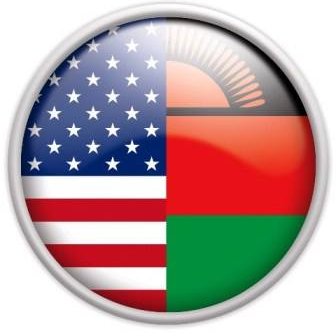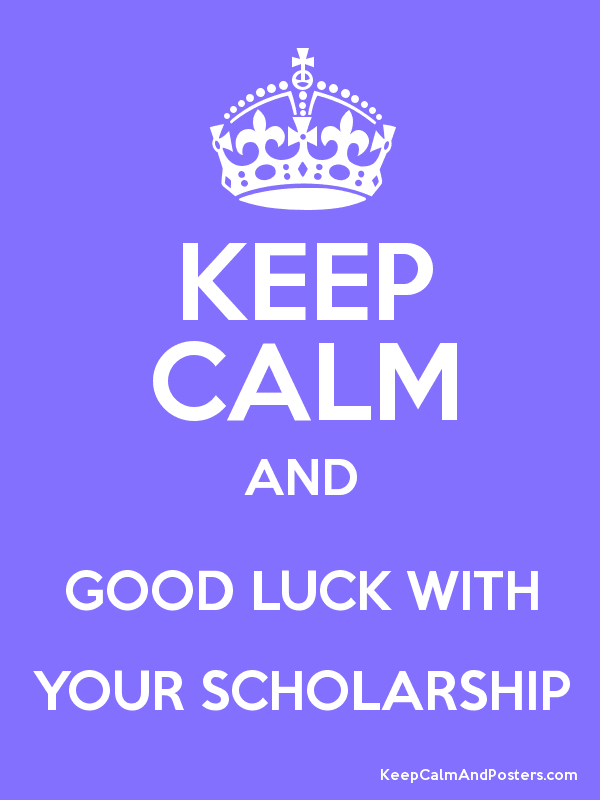Public Diplomacy Small Grants Program: Supporting Projects in Malawi
www2.fundsforngos.org
image (not from entry) from, with caption: U.S. Embassy Lilongwe
Deadline OngoingThe Public Affairs Section (PAS) at the U.S. Embassy in Lilongwe, Malawi of the U.S. Department of State is pleased to announce that funding is available through its Public Diplomacy [JB emphasis] Small Grants Program.PAS awards a limited number of grants to individuals, non-governmental organizations, and academic institutions to support exchange between the U.S. and Malawi with the aim of improving mutual respect and understanding between the people of the two countries.Priority ProjectsThe Public Diplomacy Small Grants Program supports projects with the following themes and initiatives:American culture/societyEntrepreneurship and innovationWomen/girls empowermentYouth leadership developmentHuman rights and civil society developmentDemocracy, transparency in governance, and rule of lawScience and technologyEducational initiativesFunding InformationPAS will consider proposals up to $..
Blast from the Past: Obituary of the diplomat/scholar who introduced “Public Diplomacy” into the...
"Edmund Asbury Gullion, 85, Wide-Ranging Career Envoy"
image from
Wolfgang Saxon, The New York Times, March 31, 1998
Edmund Asbury Gullion, one of the country's most accomplished career ambassadors and former dean of the Fletcher School of Law and Diplomacy at Tufts University, where he trained the next generation of Foreign Officers, died in his sleep the night of March 17 at his home in Winchester, Mass. He was 85.
The cause was apparently a heart attack, the Fletcher School reported.
Mr. Gullion earned his spurs in war-torn Europe and ended his diplomatic career in 1964 as United States Ambassador to the recently independent Congo, a flashpoint of the cold war. As an old hand on Indochina he was also deeply involved in the conflict that tore at Southeast Asia, whose reverberations followed him even after he settled into academe in Medford, Mass.
He was dean of the Fletcher School from 1964 until 1978.
The Murrow Center, named after Edward R. Murrow, was intended to establish di..
An international approach to the cultural Cold War: public diplomacy towards Africa
image (not from entry) fromZeitenblicke
Volume 12, 2013-09,
ISSN: 1619-0459
Publisher: Digital Peer Publishing NRW
An international approach to the cultural Cold War: public diplomacy towards Africa
Author:
Gerits, Frank
Abstract:
This article analyzes how the tactics behind French public diplomacy [JB emphasis] in West-Africa and Congo-Leopoldville/Kinshasa evolved between 1945 and 1965. To overcome the low appeal that French propaganda had for Africans, the French gradually integrated the successful methods that their competitors in Africa employed into their own strategy. It shows that the battle for African hearts and minds was global, that Ghana and Egypt were active, and that intercultural, propaganda agencies adopted and adapted each other's successful strategies. In doing so, it hopes to emphasize the explanatory potential of a genuine international approach to diplomatic history.
The norms of diplomatic culture are an emerging field of study in International Relations amo..
Using American Soft Power to Support Women and Girls
iop.harvard.edu
Guest: Evan Ryan, Assistant Secretary of State of Cultural, Educational Affairs in the Obama Administration and now Executive Vice President at Axios.
Wise diplomats know that American power includes the ability to persuade others to follow our lead. The United States conveys and highlights our culture and values through a wide range of public diplomacy [JB emphasis] and exchange programs administered by the Department of State. In 2017, OMB Director Mulvaney announced a “hard power budget” which proposed dramatic cuts in State Department and USAID budgets. What is the value of soft power in promoting and supporting women’s rights? What programs have been most effective in conveying the important values of equality and opportunity?
Date and time: Thursday, February 21, 2019 - 4:30pm to 5:45pm
Location: Littauer L-166 (IOP Conference Room)
Fighting Misinformation: How to Build Trust in a World of Liars
cmds.ceu.edu
image from entryType: Panel Discussion
Audience: Open to the Public
Organizer: Center for Media, Data and Society
Building: Nador u. 15
Room: 101 (Quantum Room)
Academic Area:
European MediaHungarian MediaJournalismMedia, Communication and Information Policy
Monday, February 25, 2019 - 5:30pm
Add to Calendar
Date: Monday, February 25, 2019 - 5:30pm to 7:00pm
Who produces misinformation, how and why? How do people perceive misinformation in Brazil, the US, Nigeria, India or Hungary? Is social media part of the problem or the solution? What is the role of regulators, civil society, journalists and corporations in fighting misinformation?
Experts and journalists discuss various aspects of the “misinformation” phenomenon: recent trends, forms of misinformation in different contexts and potential remedies.
Participants:
Daniel Funke, Poynter InstituteAnita Komuves, Atlatszo.huOren Levine, International Center for JournalistsKrisztina Nagy, Budapest University of Technology an..
Upgrading U.S. Support for Armenia’s Postrevolution Reforms
Ray Salvatore Jennings, carnegieendowment.org, February 14; original article contains links
image fromExcerpt:
[T]he United States should increase its current military engagement with Armenian counterparts on disaster preparedness, improved interoperability with NATO forces, and defense reforms. Such moves will deepen ties with the West over time. Renewed public diplomacy [JB emphasis] initiatives advancing English language training, U.S. values, and U.S. culture will both strengthen economic and cultural ties and help Armenians resist disinformation. Nuanced approaches like these, and the economic measures suggested below, will help Washington avoid openly provoking Moscow while enabling Yerevan to substantiate its multipolar orientation. ...
CONCLUSIONS
The global struggle for democracy is as difficult as it has been in decades. Democratic breakthroughs, however rare in recent years, are a reminder that well-organized and inspired citizens can reclaim control of their government and ..
How a Pay TV Company Is Serving up a Soft Power Win for China...
Angela Lewis, thediplomat.com, February 14, 2019
StarTimes is making inroads across the continent, and winning fans in the process.Image from article, with caption: A StarTimes building -- and billboard -- in Tanzania. Image Credit: Wikimedia Commons/ Ali A. Fazal
According to BuzzFeed News, on February 1 Chinese state television broadcaster CGTN America registered as a foreign agent in the United States, to comply with the Foreign Agent Registration Act (FARA). CGTN America director-general Jing Ma remained upbeat, claiming the registration was not a reflection on the editorial professionalism of staff, but it is bad news for China’s soft power efforts. Registration directly links CGTN America to propaganda messaging of the Chinese state, thereby weakening public diplomacy [JB emphasis] objectives of building trust and credibility.Unfortunately, this setback is part of a pattern of failure in Chinese media capacity building since the turn of the 21st century. In 2002, China designated..
The Politics of Embarrassment: Brand Failure in Canadian Foreign Policy
duckofminerva.com
image from article
This is a guest post from Eric Van Rythoven. Eric Van Rythoven recently finished his PhD at Carleton University studying emotion, world politics, and security. His work is published in Security Dialogue and European Journal of International Relations.The Trudeau government is in crisis. Yesterday morning Jody Wilson-Raybould, Canada’s former Attorney General recently demoted to Minister of Veterans Affairs, resigned from cabinet. The resignation comes on the heels of a Globe and Mail report that someone in the Prime Minister’s Office allegedly attempted to influence Wilson-Raybould in her decision to prosecute SNC Lavalin.
A politically connected and influential engineering firm based in Quebec, SNC Lavalin is currently mired in charges of fraud and bribery in relation to its work in Libya. As recently as Monday night Trudeau expressed “full confidence” in Wilson-Raybould, saying that her continuing presence in cabinet “should speak for itself”.By ..
Public Affairs Jobs (with Salaries) Indeed.com
ca.indeed.com
image (from entry) from
Public Affairs Coordinator (Cover Letter Required) REALTORS® Association of Hamilton-BurlingtonHamilton, ONDevelop promotional and educational campaigns that effectively inform the public about the real estate industry....Sponsored - save jobCoordinator, Public Affairs
Canadian Dental AssociationOttawa, ONThe Canadian Dental Association (CDA) is seeking a Coordinator, Public Affairs. Organize and coordinate the logistics of Public Affairs meetings and events;...Sponsored - 1 day ago - save jobRegulatory Affairs Coordinator
Canadian Health Food AssociationToronto, ONWorking with the Regulatory Affairs team, the Regulatory Affairs Coordinator coordinates the day-to-day regulatory work and attendant communications on behalf...Sponsored - save jobPublic Affairs CoordinatorNorthwest Territories School BoardsYellowknife, NT$80,457 a yearPublic Affairs Coordinator. Typically these knowledge, skills and abilities would be acquired through the completion of..
Russian Public Diplomacy and Influence Activities: The Nordic Case
ut.ee
Date: 19.02.2019 -
12:15 to 13:45
In the last decade, Russian foreign policy conduct towards Europe has become more active. The military interventions in Georgia (2008), Ukraine (2014) and Syria (2015) have dramatically changed the relations between the EU and Russia. One of the regions where Russia has increased its presence is the Baltic Sea, where the security climate has deteriorated.In his lecture, Martin Kragh will discuss how Russia has used public diplomacy [JB emphasis] , but also influence activities, towards the Nordic countries Sweden and Finland, in order to shape the security climate in a favourable direction for the Kremlin.Martin Kragh is head of the Russia and Eurasia Programme at the Swedish Institute of International Affairs, and associate professor at the Institute for Russian and Eurasian Studies at Uppsala University. He defended his PhD at the Stockholm School of Economics in 2009, and specializes in the economic and political development of Russia and the..

















